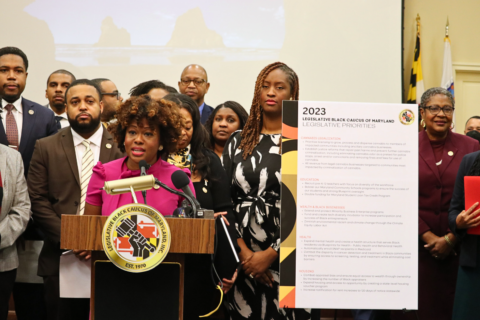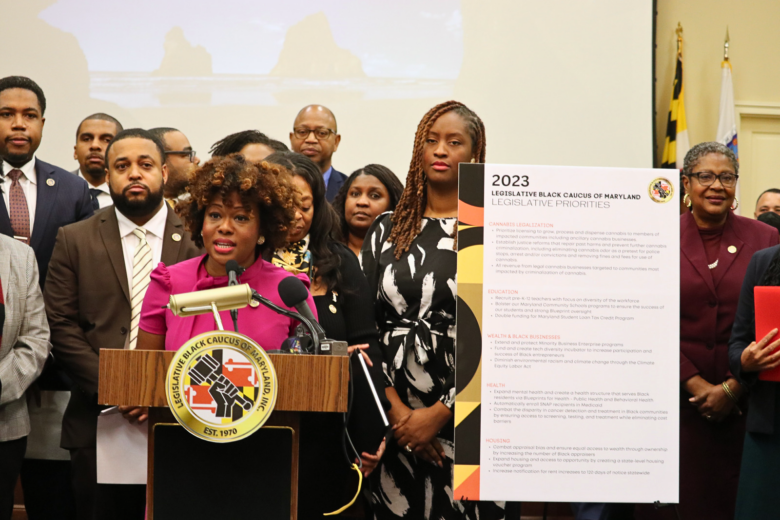This content was republished with permission from WTOP’s news partners at Maryland Matters. Sign up for Maryland Matters’ free email subscription today.
This article was republished with permission from WTOP’s news partners at Maryland Matters. Sign up for Maryland Matters’ free email subscription today.

More housing options should be available for formerly incarcerated citizens who are returning to communities, Qiana Johnson, who founded and runs Life After Release in Prince George’s County, told members of the Legislative Black Caucus of Maryland.
That’s why she advocates for state lawmakers to pass the Fair Chance in Housing Act, which became law in New Jersey two years ago. It prohibits housing providers from asking for an applicant’s criminal history, including expunged convictions, juvenile adjudications, or sealed records. The New Jersey law has some exceptions for the most serious violent crimes.
“The affordable housing shortage continues to drive the exclusion of formerly incarcerated people from the housing market,” Johnson said during an online community listening session Wednesday. “This means that local authorities and landlords have broad discretion to punish people with criminal records long after their sentences.”
Johnson joined a few dozen community leaders, advocates and other Marylanders to urge the Black Caucus to introduce and pass legislation when the General Assembly convenes in January.
Other policies they asked the caucus to push in its legislative agenda include expanding the authority of the state’s Prescription Drug Affordability Board, approving a statewide initiative that allows all public library systems to form unions, and supporting reparations for Black Americans.
Vivian Boone was among several people who asked the caucus to support legislation that didn’t pass during this year’s session.
Boone, a home care worker from Baltimore, testified for the first time in Annapolis asking lawmakers to pass House Bill 490/Senate Bill 230. That legislation would’ve required the state health department to establish and maintain a registry of people who provide home health care as employees of a residential service agency.
“Maryland needs to invest in home care workers,” Boone said Wednesday. “I take care of aging adults. Without us, families are suffering without the care they deserve.”
Dayvon Love, public policy director with Leaders of a Beautiful Struggle in Baltimore, said progress is begin made in criminal justice through legal reforms such as Anton’s Law, repealing the Law Enforcement Officers’ Bill of Rights and the cannabis search bill this year.
Love said caucus members shouldn’t get caught up in “propaganda” that criticizes community-based programs and other measures to reduce crime.
“All represent the weakening of police and prosecutors’ unfettered power in Annapolis,” he said. “My statement is really just to urge the Black Caucus to continue to champion criminal justice reform, not see criminal justice as a contrast to public safety.”
The caucus’ priorities committee, chaired by Del. Melissa Wells (D-Baltimore City), will review testimony presented Wednesday, at a town hall last month and other suggestions from residents across the state to help create a 2024 legislative agenda.
“We were listening to make sure that we are hearing from our community members, our advocates who work on behalf [of] and with the Black community,” said Del. Jheanelle Wilkins (D-Montgomery), who chairs the caucus. “And to ensure that we are providing a forum for residents to be able to talk with the caucus about their concerns and issues that are a priority to them.”








